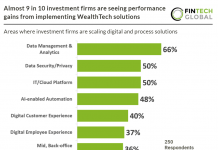The European Central Bank (ECB) has said EU citizens are unlikely to see a digital euro until 2026 at the earliest as the bank considers further design and distribution considerations.
According to Finextra, a document by the ECB said ‘a number of steps will need to be taken before a digital euro can be introduced’.
These steps include analysis of how financial intermediaries could provide front-end services, as well as how the currency would be distributed and how payments would be settled.
The ECB said, “The time to market for this solution is more uncertain. The development of a third-party validated solution for online payments should not be delayed in case the timely delivery of a peer-to-peer validated solution for offline payments proves to be unfeasible.”
The bank said that the Governing Council of the EU will decide in autumn of next year whether to start a ‘realisation phase’ to develop and test the solutions and arrangements required to provide a digital euro.
“This phase could last around three years. A decision on the possible issuance of a digital euro may only come later, also depending on legislative developments regarding a regulation to establish and govern essential aspects of the digital euro that will be discussed by the European Parliament and the Council of the EU, upon a proposal by the European Commission,” said the ECB.
Fabio Panetta – ECB board member – said that policymakers will soon start work on a rulebook for the digital euro scheme.
He added, “Putting in place a set of rules from an early stage is crucial for the market to be able to develop digital euro solutions and be ready if and when a digital euro is introduced.”
The ECB recently published its plans on how it intends to decarbonise corporate bond holdings in its monetary policy portfolio.
Copyright © 2022 FinTech Global











